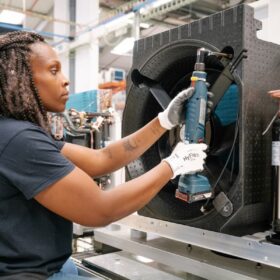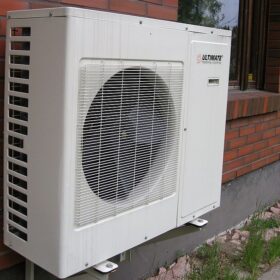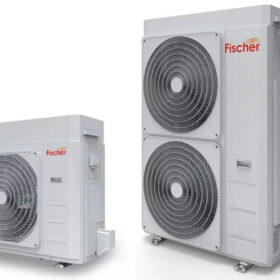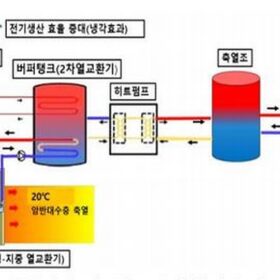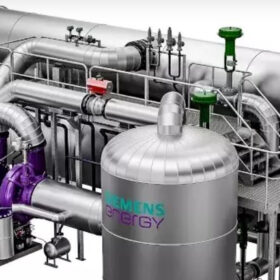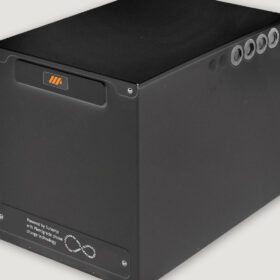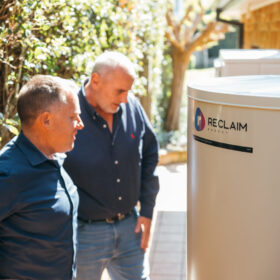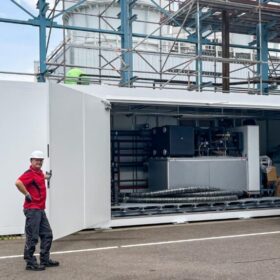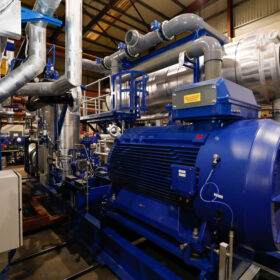Bosch invests $106 million in heat pump factory in Portugal
Bosch has invested $106 million in a heat pump factory near Porto, Portugal, where it produces heat pump systems with propane as a refrigerant. It says its commitment to heat pump development and production will hit €1 billion ($1.06 billion) by the end of this decade.
UK heat pump feasibility project gets funding boost
The UK Power Networks’ Heat Risers project, which aims to accelerate the decarbonization of multi-occupancy buildings with heat pumps, this month received £500,000 ($609,35) from the industry regulator, Ofgem, to proceed to the next development phase.
Panasonic unveils new residential heat pumps
Japan’s Panasonic has developed a new central heat pump system for residential space heating and cooling.
Fischer Commercial presents air source heat pumps for residential applications
Fischer Commercial, a UK-based heat pump supplier, has unveiled new air source heat pumps for residential use. It is making them at its factory in Guadalajara, Spain. It claims that they offer a seasonal coefficient of performance (SCOP) of up to 4.85.
PVT-driven geothermal heat pump system for greenhouses
South Korea’s Rural Development Administration has created an energy system for greenhouses that combines photovoltaic-thermal (PVT) panels with a ground-source heat pump. It is said to compensate, via the PVT panels, the typical shortcomings of geothermal energy and to be able to reduce heating and cooling costs in greenhouses by up to 78%.
German energy supplier switches on 20 MW ‘river’ heat pump
MVV Energie AG has commissioned one of Europe’s largest heat pumps. The system uses water from the Rhine River to supply hot water at temperatures ranging from 83 C to 99 C.
Triple Solar introduces residential thermal battery
Dutch company Triple Solar has launched a residential thermal battery with a heat loss rate ranging from 0.67 kWh/day to 0.84 kWh/day. The new product can reportedly provide hot water at temperatures ranging from 45C and 55C, with the minimum heat source temperature ranging between 65C and 80C.
Panasonic introduces heat-pump hot water system
Panasonic and Reclaim Energy have partnered to develop a new heat-pump hot water system for the Australian market. They claim that it is up to five times more efficient than gas or traditional electric heating.
Fraunhofer IEG opens testing site for MW-sized heat pumps
The Fraunhofer Institute for Energy Infrastructures and Geothermal Energy (Fraunhofer IEG) says it plans to open two new test benches for large heat pumps. Manufacturers, developers and project planners will have access to the test benches, in order to bring new systems to market maturity.
Optimization model to integrate heat pumps in non-continuous industrial processes
The new optimization method is intended at designing smaller and cheaper heat pumps. Its creators said the new approach also enables higher Opex savings and an improved coefficient of performance.
